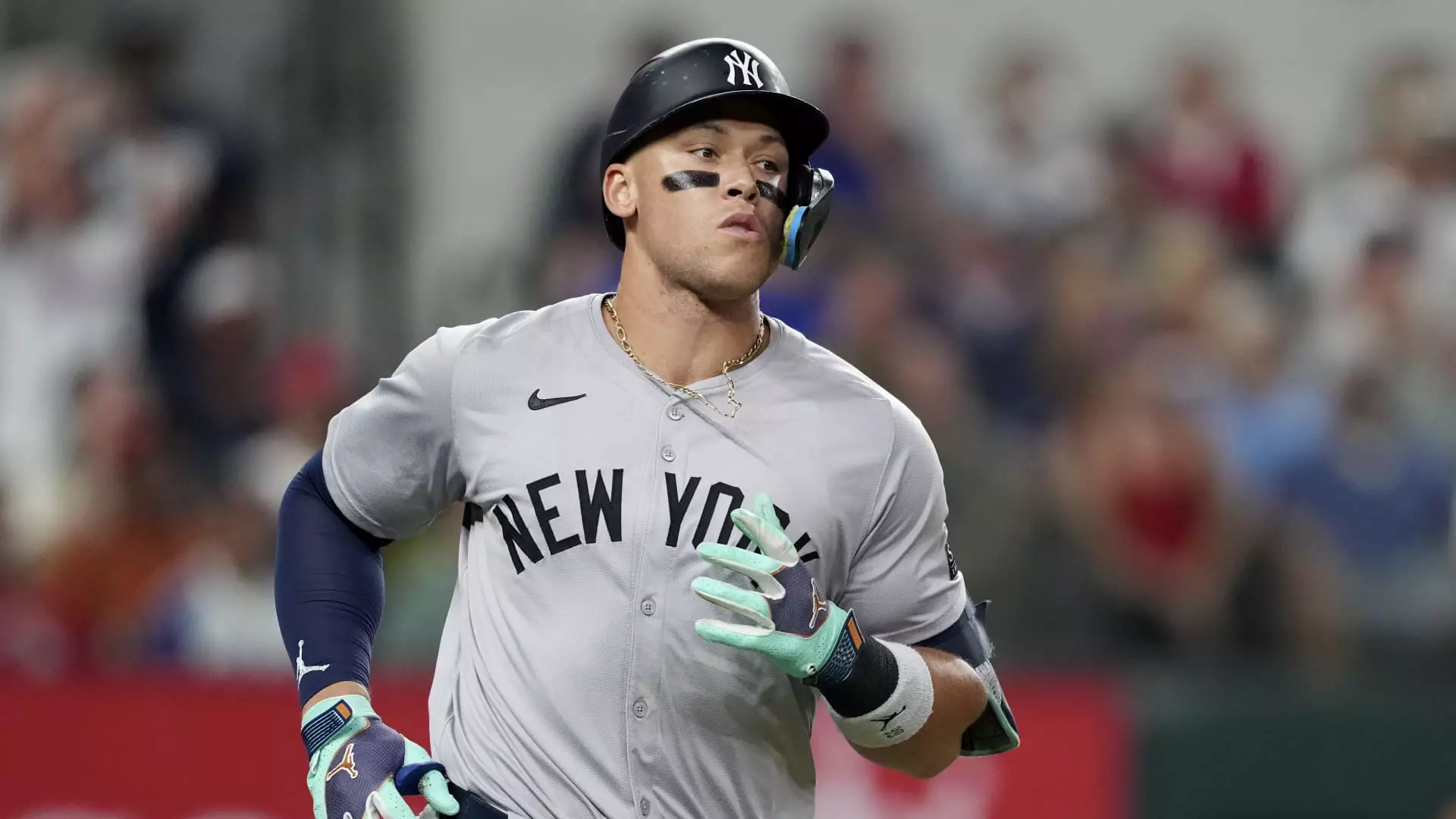The recent Major League Baseball (MLB) postseason has demonstrated a remarkable resurgence in viewer engagement, dispelling concerns that the sport is losing its cultural relevance. The National League Championship Series (NLCS) opened with a highly anticipated clash between two iconic franchises—the New York Mets and the Los Angeles Dodgers—drawing an impressive average of 8.26 million viewers across Fox Sports’ platforms. This figure marks the highest viewership for a League Championship Series game since 2009, showcasing a renewed interest in baseball as the sport tries to capture the attention of both die-hard fans and a broader audience.
Simultaneously, the American League Championship Series (ALCS) featured an enticing matchup between the New York Yankees and the Cleveland Guardians, attracting 3.9 million viewers, a notable 4% increase compared to the previous year. These games not only competed against the NFL’s stronghold of “Sunday Night Football” and “Monday Night Football” but also triumphed during a time where major league football commands a significant portion of sports viewership. For MLB, these numbers represent more than mere statistics; they are indicative of a larger trend of revitalization within the league.
The increase in viewership isn’t an isolated phenomenon. The MLB’s success began in the earlier stages of the postseason, as the American League Division Series averaged three million viewers, a jump of over 20% from the previous year. Additionally, the National League Division Series experienced similar growth, particularly in game viewership, creating a promising trajectory for the postseason as a whole.
One of the key factors influencing this surge in interest is MLB’s commitment to evolving the game. In recent seasons, the league has implemented critical rule changes aimed at increasing the pace of play and enhancing in-game action. The introduction of a pitch clock and adjustments to base sizes have led to shorter games filled with dynamic plays, appealing to a younger demographic that thrives on rapid engagement. As MLB Commissioner Rob Manfred suggested, the increased fan engagement across various platforms exemplifies the league’s successful efforts to capture the attention of new audiences.
To further attract fans, MLB has strategically featured generational talents like Shohei Ohtani and Aaron Judge. Their presence on the Dodgers and Yankees, respectively, adds significant allure to the potential World Series, pitting two of baseball’s most storied franchises against each other. Industry leaders are optimistic; Todd Boehly, CEO of Eldridge Industries, articulated that such a matchup would be a monumental occasion for the sport, underscoring the high stakes involved.
While the Yankees and Dodgers receive significant national attention, the Mets’ turn-around midseason and the Guardians’ dramatic comeback have injected additional storylines into the postseason narrative. The mettle displayed by the Mets following a revitalizing game featuring a playful promotion—where a McDonald’s mascot threw the first pitch—reflects MLB’s growing embrace of entertainment elements. Furthermore, the Guardians’ resurgence with performances from star players like José Ramírez signals that smaller market teams can also captivate audiences.
Despite the recent successes, MLB must remain vigilant. While engagement numbers show promise, historical fluctuations serve as reminders of the challenges the league faces, particularly in maintaining its status among younger generations with myriad entertainment options. The previously disappointing ratings of the World Series illuminate that team matchups can considerably impact viewership, as demonstrated in 2023 when the Texas Rangers and Arizona Diamondbacks’ clash resulted in historically low ratings due to their limited national appeal.
Looking ahead, the key to sustaining this newfound excitement lies in effectively marketing teams and maintaining fan engagement year-round. MLB’s innovative approach, particularly when paired with continued emphasis on promoting its star players and enhancing game experiences, could strengthen its cultural relevance within an increasingly competitive sports landscape.
Major League Baseball appears to be on a rewarding trajectory, revitalizing a once-dwindling interest in America’s pastime. Whether it continues to build on recent successes and address looming challenges will dictate the league’s evolution moving forward. The groundwork has been laid, offering promising signs that baseball can thrive well into the future.

